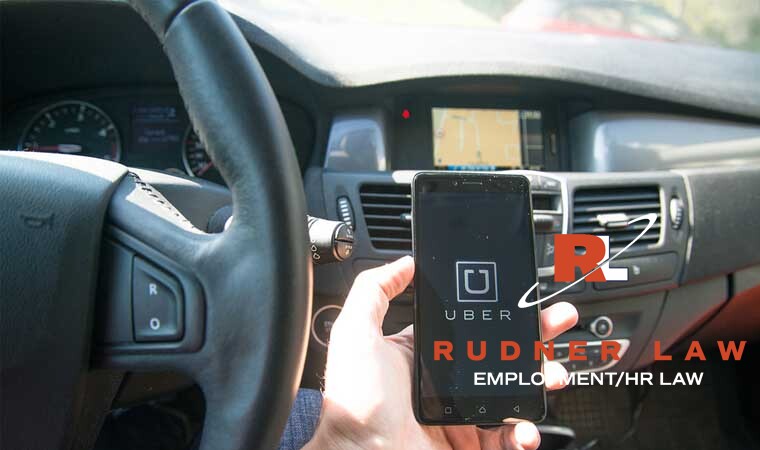


A couple in New Jersey sued Uber after being severely injured in a crash caused by an Uber driver, but their case was dismissed due to a previous agreement they had made with the company. The agreement, which the couple's daughter approved while ordering food, included a clause stating that any incidents or accidents would be settled through arbitration rather than in a court of law. This ruling highlights the use of arbitration clauses by companies to protect themselves from legal action and raises questions about consumer rights and the impact of such clauses on individuals seeking compensation for injuries.
Arbitration Clauses: Uber Passengers Left Injured and Without Recourse
Background:
In a recent case, a couple in New Jersey suffered severe injuries in an Uber crash. However, their lawsuit against Uber was dismissed due to an arbitration clause they had unknowingly agreed to. This ruling sheds light on the growing prevalence of arbitration clauses in consumer contracts and the potential consequences for individuals seeking compensation for injuries.
Arbitration clauses require disputes to be resolved through an arbitration process rather than in a court of law. Companies often include such clauses in their contracts to save time and money on legal proceedings. However, arbitration can limit the rights of consumers, as they may not have the same protections or access to damages as they would in court.
The Uber Case:
The New Jersey couple filed a lawsuit against Uber, claiming negligence and demanding compensation for their medical expenses and lost wages. However, Uber argued that the lawsuit should be dismissed due to an arbitration clause in the ride-sharing app's terms of service.
The couple claimed that they had not knowingly agreed to the arbitration clause. However, the court ruled that their daughter had approved the terms and conditions while ordering food through the Uber Eats app. This approval, the court held, bound the couple to the arbitration clause, even though it was not directly related to the ride-sharing service.
Implications:
The dismissal of the couple's lawsuit highlights the potential risks of arbitration clauses for consumers. These clauses can prevent individuals from pursuing legal action and obtaining fair compensation for injuries. Furthermore, they can be hidden in lengthy and complex contracts, making it difficult for consumers to fully understand their rights.
Top 5 FAQs:
An arbitration clause is a provision in a contract that requires disputes to be resolved through arbitration rather than in court.
Companies use arbitration clauses to save time and money on legal proceedings and to avoid the risk of large jury awards.
Arbitration clauses are generally considered binding if they are clear and unambiguous. However, they may be invalidated if they are deemed to be unconscionable or if there is evidence of fraud or coercion.
In some cases, consumers may have the option to opt out of an arbitration clause within a certain time period. However, this is not always possible, and consumers should carefully review contracts before signing them.
Arbitration proceedings are typically closed to the public and can be subject to different rules and procedures than court proceedings. This can limit the rights of consumers, who may not have the same access to discovery, evidence, and legal remedies as they would in court.

A recent RBI bulletin has revealed that the profitability of Indian companies has nearly tripled since the onset of the Covid-19 pandemic. The corporate profit-to-GDP ratio has reached a 17-year high, with large companies emerging as the primary contributors to this increase. This surge has been attributed to pandemic-induced pent-up demand, manufacturing resilience, and improved operational efficiency. However, despite this growth, corporate credit growth remains muted as firms are sitting on significant cash reserves, reducing their reliance on bank loans.

The Employees’ Provident Fund Organisation (EPFO) has announced five major changes to the Employees’ Pension Scheme (EPS) that will significantly impact the retirement savings of salaried employees. These changes include a revised method of pension calculation, an increase in the maximum pension limit from Rs 7,500 to Rs 15,000 per month, and a reduced minimum age for drawing pension from 58 to 50 years. These revisions aim to simplify pension access, increase benefits, and improve portability for members across the country. This move, following a Supreme Court directive, is expected to provide major relief to pensioners and ensure a fair and realistic computation for employees.

Major stock indexes trended downwards on Wednesday as earnings reports pour in and trade tensions between the US and China resurface. The Nasdaq, Dow Jones Industrial Average, and S&P 500 all ended the day in the red, with pressure from a report that the White House is considering export restrictions on China. Meanwhile, gold prices saw a slight increase and the 10-year Treasury yield ticked lower. Among corporate news, Netflix reported weaker-than-expected quarterly profit while Intuitive Surgical saw a boost in shares after exceeding expectations. DraftKings also rose upon news of their acquisition of Railbird, while Tesla and IBM prepared for their third-quarter results. Lastly, AT&T and Alphabet had mixed revenue results, causing their stocks to decline and fluctuate.

Zoho, the popular business productivity software company, is making its entry into the consumer fintech space with the launch of Zoho Pay. This standalone app will also be integrated into the company's chat platform, Arattai, allowing users to easily send and receive money while chatting with others. Zoho plans to expand their fintech offerings to include lending, broking, insurance, and wealth-tech, and sees Zoho Pay as a key component of their overall financial services ecosystem. This move also positions Arattai as a competitor to WhatsApp in the Indian market, as it experiences a surge in downloads driven by government support and privacy concerns surrounding global tech platforms.

Multinational digital tech giant Philips, known for its innovative products, lost a 20-year legal battle before the Delhi High Court. The case involved allegations of patent infringement against an Indian company in the manufacturing and sale of Video Compact Discs (VCD). The court's decision was a blow to Philips, highlighting the importance of protecting intellectual property in the business world.

Concord Control Systems, Elecon Engineering, and Welcure Drugs & Pharmaceuticals are among the companies to trade ex-date for corporate actions such as bonus issues, interim dividends, and stock splits. The ex-date is an important marker for investors, as those purchasing shares on or after this date will not be eligible for the announced benefits. Shareholders of these companies can expect to receive a bonus issue, interim dividend, and stock split in their portfolios, aiming to enhance shareholder value, reward investments, and improve stock liquidity.

Rediffusion's latest campaign for Rasna, titled "India ke Khushiyon ka Vitamin" aims to redefine the mother-child relationship in the modern world. By highlighting the brand's fruit-based drinks as a healthy and refreshing drink for kids, the campaign acknowledges the role of mothers as active partners in their child's growth and development. With a focus on Vitamin Josh and Vitamin Hasi, this new campaign highlights how Rasna is the perfect choice for today's multitasking mothers.

The Indian stock markets took a break on Wednesday in observance of Bali Pratipada, a day that holds cultural significance. The Asian markets, on the other hand, showed a mixed performance with Japan's Nikkei 225 declining, Singapore's Straits Times gaining, and Hong Kong's Hang Seng and Taiwan's Weighted Index decreasing. The previous day's Muhurat Trading session saw slight gains in Indian markets and top gainers included Cipla and Bajaj Finserv.

Investors in the Indian stock markets are getting a break from trading today with markets closed for Diwali Balipratipada. This traditional holiday marks the end of Diwali festivities and symbolizes Lord Vishnu's victory over King Bali. Trading in equity, derivatives, and commodity markets will remain suspended for the day, with normal trading resuming tomorrow. This break is a part of the exchanges' annual holiday list, aligning with important national and religious occasions.

Branded mithai sales are expected to rise by 15-20% during this Diwali season in India, due to a surge in corporate gifting, retail demand, and product innovation. The packaged sweets market in India is projected to reach 27,600 by 2033, with a 16% annual growth rate, as per IMARC Group. With a growing taste for luxury and customization in gifting, Indian brands are expanding rapidly and introducing new products, such as millet-based and vegan options, to cater to changing consumer preferences.